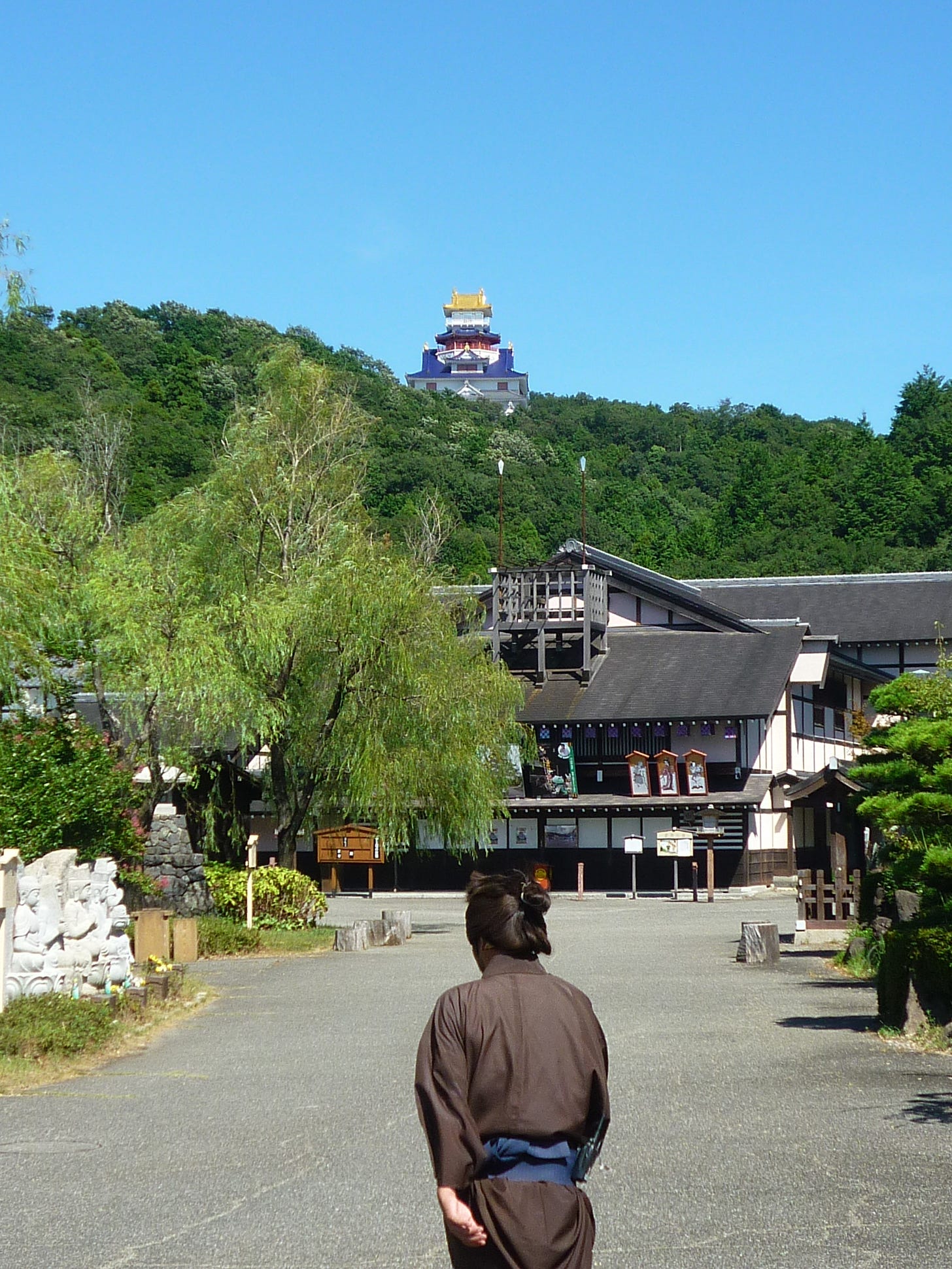Tanshin-funin and Azuchi Castle
Why Oda Nobunaga Banned the Practice Now Known as Tanshin-funin
The practice of tanshin-funin is a Japanese corporate custom under which married salaried worker men* are expected to leave their families behind and are forced to live as "temporary bachelors" when assigned to offices within their employment’s organization, and live for a number of years in other towns, regions, or even countries, making a daily commute to and from home impossible.
This unique work system was introduced by Japanese companies in the period of rapid economic development during the 1960s and 1970s, and increased during the 80’s and 90’s in particular. Unlike in the west where the family would normally be transferred with him, in Japan, the salaryman will go alone, while the rest of the family remain behind in the family home. Ideally, the practice means the husband can concentrate on work, without interrupting the children's schooling and social lives. Life employment, another characteristic of the Japanese working system, forces workers to accept tanshin funin assignments in order to receive promotions.
According to a Japanese Ministry of Internal Affairs and Communications Employment Status Survey, there were690,000 tanshin funin workers in 1997, up 21,000 from 1992. Tanshin funin remains one of the major features of working life across a broad range of industries. A General Survey on Working Conditions by the Ministry of Health, Labour and Welfare indicated that the percentage of companies with married employees working away from home was 19.1% in 1998 and 19.6% in 2004. In addition, the survey revealed that larger companies tended to employ a higher percentage of married tanshin funin workers.
Something similar happened in old Japan during the warlord Oda Nobunaga's time. In his quest to conquer the nation and bring it under his control, Nobunaga wisely took over or built castles as he expanded his empire. In many cases, the lower ranked samurai under him would leave their families far behind the lines in the safety of the previous castles, where they had homes.
Unlike other warlords who would remain in their traditional fiefs, Nobunaga had transferred his own power base four times in the 13 years between between 1563 and 1576, from Kiyosu to Komakiyama in modern-day Aichi Prefecture, then to Gifu (Gifu Prefecture) and finally establishing his castle and court at Azuchi, in Shiga Prefecture. Not long after arriving in Azuchi, Nobunaga then ordered all his men to have their families make the move to Azuchi and set up house in the new castle town.
The reasons for this demand were many. Having the family at Azuchi was good for commerce in the town, as the extra influx of population meant more mouths to be fed and people to be clothed. That was good for establishing the castle town as a vibrant and prosperous place, in turn attracting more merchants. Having his men base themselves in Azuchi meant that their families could be watched over if needed, protected from anyone who may want to make a hostage of them, putting Nobunaga’s organization at risk. Indeed, many castles were toppled over the years by having been compromised by samurai on the inside, whose families on the outside had been captured by the enemy forces. Alternatively, if anyone within Nobunaga’s organization ever defected, their families at Azuchi could quickly be made hostage, should the need ever arise. It also meant his men were not off visiting their families, nor concerned about households far from Azuchi.

These are all economically and strategically considered logical, sensible rationales, but what prompted Nobunaga to order his men to shift their families to the new castle was because of an enemy that even Nobunaga feared and could not defeat — fire!
Not long after Azuchi had been commissioned, a fire had broken out within the castle’s residential quarters, but thankfully had been quickly extinguished. An investigation into the incident revealed that men living on their own were prone to not watching the hearth or kitchen fires, and so as a fire precaution, Nobunaga had their families move to Azuchi. Now there would be someone to watch the home fires while the men attended their duties.
*only around 900 married women nationally are currently believed to be involved in the practice of tanshin-funin.






How interesting! I wonder if he thought, as well as helping to prevent fires, this will also...(all those other things). Maybe not though “this could increase well-being, which will have other positive spin-offs”....